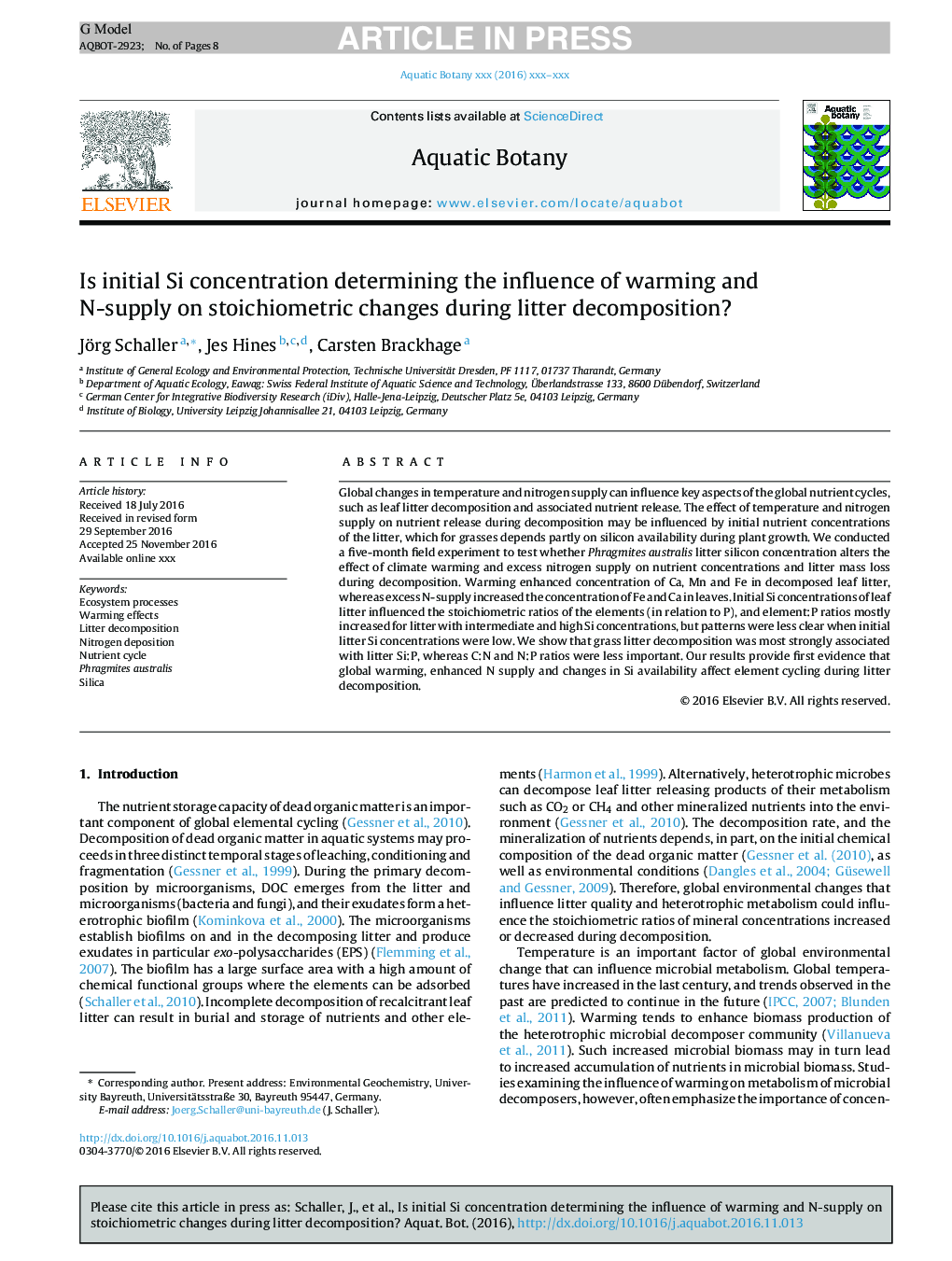| Article ID | Journal | Published Year | Pages | File Type |
|---|---|---|---|---|
| 5764052 | Aquatic Botany | 2017 | 8 Pages |
Abstract
Global changes in temperature and nitrogen supply can influence key aspects of the global nutrient cycles, such as leaf litter decomposition and associated nutrient release. The effect of temperature and nitrogen supply on nutrient release during decomposition may be influenced by initial nutrient concentrations of the litter, which for grasses depends partly on silicon availability during plant growth. We conducted a five-month field experiment to test whether Phragmites australis litter silicon concentration alters the effect of climate warming and excess nitrogen supply on nutrient concentrations and litter mass loss during decomposition. Warming enhanced concentration of Ca, Mn and Fe in decomposed leaf litter, whereas excess N-supply increased the concentration of Fe and Ca in leaves. Initial Si concentrations of leaf litter influenced the stoichiometric ratios of the elements (in relation to P), and element:P ratios mostly increased for litter with intermediate and high Si concentrations, but patterns were less clear when initial litter Si concentrations were low. We show that grass litter decomposition was most strongly associated with litter Si:P, whereas C:N and N:P ratios were less important. Our results provide first evidence that global warming, enhanced N supply and changes in Si availability affect element cycling during litter decomposition.
Keywords
Related Topics
Life Sciences
Agricultural and Biological Sciences
Aquatic Science
Authors
Jörg Schaller, Jes Hines, Carsten Brackhage,
